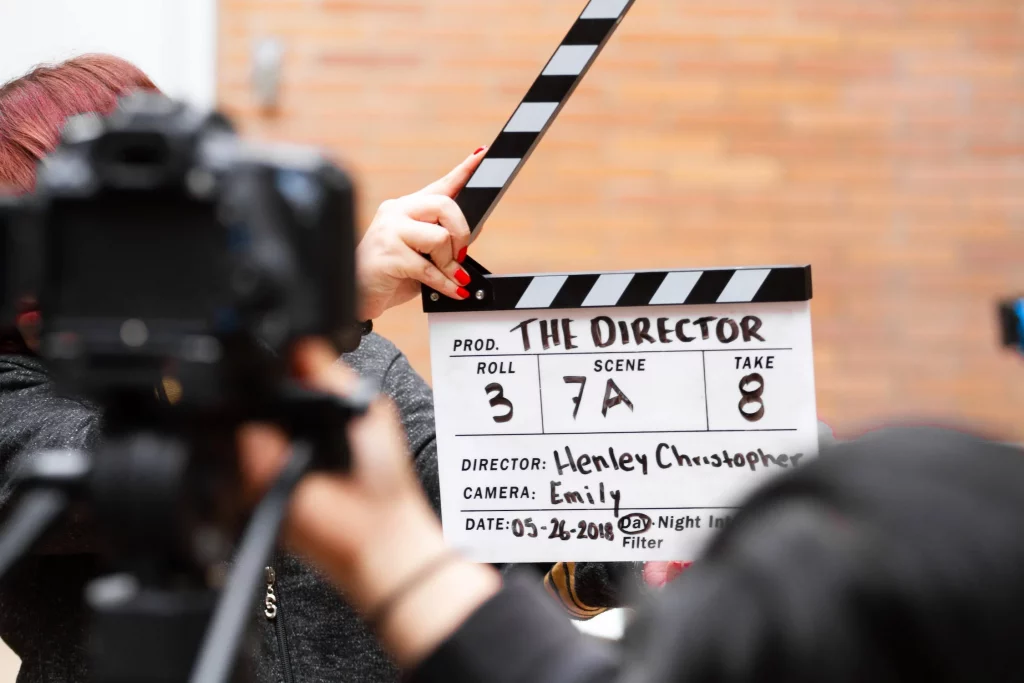Behind-the-Scenes Jobs for Actors
In the world of Hollywood, actors often steal the spotlight, but there’s an ensemble of unsung heroes working behind the scenes to make movie magic happen. While everyone knows about directors, producers, and cinematographers, there are lesser-known roles vital to the production process. Here, we shine a light on some of these roles and explore how aspiring actors can carve a niche in these lesser-known but equally important positions.
Stand-Ins
Ever wonder how actors manage to look flawless in every shot? Enter the stand-in, a crucial yet often overlooked role on set. Stand-ins are essentially duplicates of the principal actors, used for lighting and camera setup before the stars step onto the scene. They meticulously mimic the actor’s movements and positions, allowing the crew to perfect technical aspects without draining the main cast’s energy.
To become a stand-in, aspiring actors should network with industry professionals, especially casting directors and production assistants. It’s also beneficial to gain experience as an extra or background actor to understand set dynamics and protocols.
Stunt Doubles
Action-packed scenes wouldn’t be possible without the bravery and skill of stunt doubles. These adrenaline junkies step in for actors during dangerous sequences involving fights, falls, or high-speed chases. Stunt doubles undergo rigorous training to execute stunts safely while maintaining the character’s likeness.
Becoming a stunt double requires extensive training in martial arts, gymnastics, or other physical disciplines. Many stunt performers start as athletes or martial artists before transitioning into the film industry. Joining a stunt training program or enrolling in specialized courses can provide the necessary skills and certifications to kickstart a career in stunts.
Script Supervisors
While actors focus on delivering lines and emoting, script supervisors ensure continuity and accuracy in dialogue and action sequences. They meticulously track each scene’s details, including props, costumes, and actors’ movements, to ensure consistency throughout filming. Script supervisors also collaborate closely with directors and editors to maintain the film’s narrative coherence.
Aspiring script supervisors should possess strong organizational skills, attention to detail, and a thorough understanding of screenplay structure. Building a solid foundation in film studies or production and gaining experience as a production assistant can pave the way to becoming a script supervisor.
Camera Assistants
While the camera captures the action, camera assistants are behind its smooth operation. Also known as camera operators or camera technicians, these professionals work closely with cinematographers to set up and maintain camera equipment, ensuring each shot is executed flawlessly.
Camera assistants are responsible for tasks such as loading film or digital media, adjusting focus and exposure settings, and operating camera cranes or dollies for dynamic shots. They play a crucial role in achieving the director’s vision while navigating the technical complexities of filmmaking.
To pursue a career as a camera assistant, aspiring individuals can start by gaining practical experience through internships or entry-level positions in camera departments. Familiarity with different camera systems, lenses, and accessories is essential, along with a keen eye for detail and strong communication skills.
Many camera assistants begin their journey as production assistants or camera trainees, learning the ropes under experienced professionals. As they gain proficiency and build their network within the industry, they can advance to higher positions and take on more significant responsibilities in camera operations.
Dialect Coaches
Accents and dialects can breathe life into characters, but mastering them requires skill and precision. Dialect coaches work with actors to perfect accents specific to their roles, ensuring authenticity and consistency throughout the film. Whether it’s mastering a Southern drawl or a British RP accent, dialect coaches provide invaluable guidance and feedback to actors.
Aspiring dialect coaches typically have backgrounds in linguistics, theater, or speech pathology. Building a strong understanding of phonetics and dialects, as well as gaining experience in voice coaching or acting, can prepare individuals for a career as a dialect coach.
In conclusion, while actors often bask in the limelight, the film industry thrives on the collective efforts of numerous professionals working behind the scenes. From stand-ins to dialect coaches, each role contributes to the seamless execution of cinematic masterpieces. Aspiring actors keen on exploring alternative avenues within the industry can find fulfilling careers in these lesser-known but essential positions. By honing their skills, networking with industry insiders, and seizing opportunities for growth, they can carve out their niche and make invaluable contributions to the world of filmmaking.
To learn more tips and tricks for actors and models, feel free to sign up for our next FREE Online Workshop. On this free Online Workshop, you will learn about the recent changes in the modeling and acting industries that are opening the doors for more job opportunities. You will also learn cutting-edge ways to have good-paying modeling and acting jobs in your local area, flood into your email inbox on a regular basis. You will learn what to do to land these jobs from the comfort of your own home. Click below to register now!











